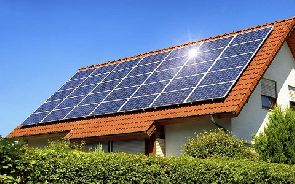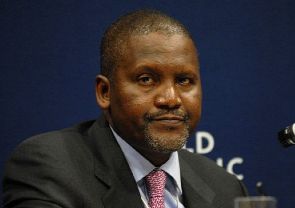Ghana on Tuesday made a bold step towards its energy mix through solar power generation by ratifying the framework agreement of the establishment of the International Solar Alliance (ISA).
The West African nation thus, becomes the seventh (7th) country after India, France, Fiji, Mauritius, Nauru and Comoros to have ratified the ISA framework agreement and also becomes a founding member of the treaty-based international intergovernmental organization.
Among the benefits for becoming a Founding Member are access to US$10billion Renewable Energy Credit Facility from India of which US$2billion is for Africa countries, technology transfer, high quality training and research from the India Centre of Excellence in Renewable Energy, and access to equipment from demonstration projects at no cost.
Chairman of the Mines and Energy Committee, Emmanuel Akwasi Gyamfi, in moving the motion for the adoption of the Committee’s report told Parliament that the overall goal for accepting to join the ISA is to enable the government leverage on the opportunities offered by the Alliance to accelerate Ghana’s quest to increasing its renewable energy mix including solar from the current 1% to 10% by 2030.
The ISA is a treaty-based international intergovernmental organization of 121 countries located between the tropics of Cancer and Capricorn to address their special energy needs through efficient exploitation of solar energy to reduce dependence on fossil fuels.
The Alliance was launched on November 30, 2015, and has so far been signed by thirty-one (31) countries. Ghana signed the Framework Agreement on May 22, 2017.
The ISA is meant to reinforce efforts of other organizations such as the International Renewable Energy Agency (IRENA), Renewable Energy and Energy Efficiency Partnership (REEEP), International Energy Agency (IEA) and Renewable Energy Policy Network for the 21st Century (REN21) by establishing network and develop synergies with those organizations and supplement their efforts in a sustainable and coordinated manner.
Minister for Energy, Boakye Agyarko, told journalists after the ratification of the framework agreement that the initiative being embarked upon by the country demonstrates the commitment of the government to increasing the renewable contribution to its energy output.
“We live in a space of comparative resource advantage. We have plenty of sun that we are not using. It is therefore necessary to find avenues and arrangement or alliances that can contribute to lift up contributions of energy to power generation. The International Solar Alliance does just that. It allows all of us the 121 countries and organizations living between the tropics of Cancer and Capricorn where sunshine is abundant to collaborate in research, technology and investments in order to deepen the use of solar energy in our energy mix.
“So, it puts us in good stead to tap in to serious money through credit facilities. It puts us in good stead to be attractive to foreign investors and other investors who want to put their monies in solar and it also puts us in good stead to have creative platforms in terms of the research and technology,” he noted.
The Alliance, he added, will help reduce the crunch on the country’s budget “so that government doesn’t have to spend all that kind of money” and as well reduce the load on the national grid so that “instead of continually adding generation capacity as the population and demand grows, we will be able to manage it.”
Ghana’s membership will be fully confirmed as soon the articles of ratification from the country’s Parliament are deposited with the ISA.








